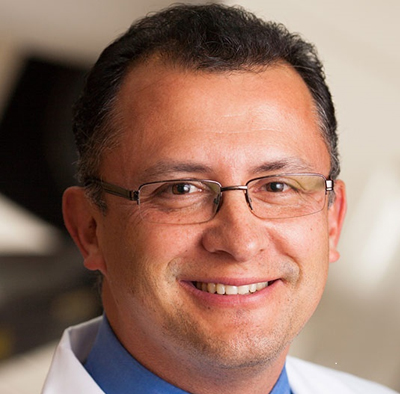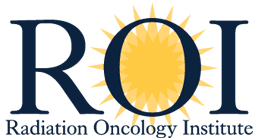Patrick Linson, MD MPH

Please tell us about your role at the Scripps MD Anderson Cancer Center. Are you involved in patient care, teaching and/or research?
I specialize in the treatment of prostate cancer, thoracic malignancies and brain tumors. Over 90% of my time is dedicated to patient care. I was an early adopter of stereotactic radiosurgery (SRS) and stereotactic body radiation therapy (SBRT) which are the mainstay of my practice now. In regard to research, I have served as a principal investigator in three prospective studies that explored the role of SBRT in the treatment of prostate cancer and oligometastatic cancers. As a Native American, Navajo and Pueblo, and Latino physician, I have come to understand many of the specific health and cancer disparities we have in our communities. I spent over 14 years creating and working on minority and underserved health projects. My master’s in public health and preventive medicine fellowship provided me with more tools to help understand and create strategies to improve health outcomes in minority and underserved populations. My involvement in projects and research to address health and cancer disparities that affect minority and underserved populations is rewarding. There are few Native American physicians in our country, so I continue to mentor high school and college students with the goal to increase the number of minority physicians entering the health professions.
Why did you decide to become a radiation oncologist?
While at Harvard Medical School, I was fortunate to have worked with some fascinating and wonderful clinicians in all my rotations. I imagined myself practicing in just about any medical discipline. I struggled deciding what field to enter, I wanted to find the best fit, understanding that, God willing, I would likely practice another 40 years. I was fortuitous, I took the advice of Dr. Rinaa Punglia, a friend and fellow student who would later become my co-resident at the Harvard Medical School’s Joint Center for Radiation Therapy. She had just completed her rotation and described what sounded like the perfect balance between patient care, high technology, opportunities for research and teaching. I remember early on my rotation being so impressed by Dr. Jay Harris, Dr. Norm Coleman and Dr. Anthony D’Amico, as well so many other distinguished radiation oncologists. Early in my radiation oncology rotation, I was convinced I had found the perfect medical field, and I never looked back.
How do you envision the future of the field of radiation oncology? In what ways would you like to see it grow/evolve?
Our field has changed considerably since I completed residency. Witnessing the evolution of image guidance, SBRT, SRS, intensity modulated radiation therapy and advances in proton therapy, have made me very hopeful for the future. I can only imagine the changes and transformations that are yet to come. With further innovations, we will see further progress in our abilities to take care of our patients by improving outcomes and limiting the side effects of our treatment.
What prompted your decision to make a financial contribution at the Founders’ Circle level to the Radiation Oncology Institute?
I feel fortunate to be in a field with such exceptional clinicians, researchers, leaders and innovators. I know my evidence-based practice is built on the important research studies of many radiation oncologists who have come before me. I feel it’s important that I help to support the research needed to further advance our field.
You reached out to members of your department to ask them to join you in leadership giving to the ROI. Two of them made significant gifts. What inspired you to contact them to ask them for their support?
Dr. Debbie Kuban introduced me to the ROI, she shared with me the mission of the ROI and some of the essential research projects the ROI has supported in the past. I was very impressed and shared our conversation with some of my colleagues. They were equally enthusiastic in wanting to support the ROI as well. It is clear to me that many ASTRO members would support the ROI if they were aware of the many meaningful and relevant research projects the Institute supports.














